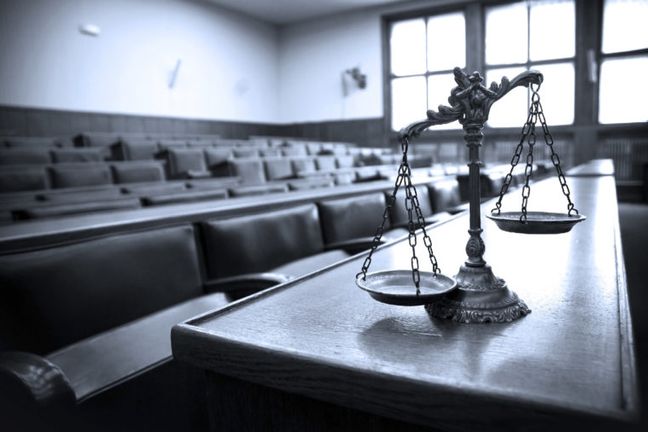Two Relevant Opinions Regarding the Discovery of Information Related to Non-Party Confidential Information, and an Opinion Noting the Importance of Including All Elements on a Jury Verdict Form
Fourth DCA holds treating physicians internal cost structure information constitutes a confidential trade secret, but defendants could still obtain same in discovery if the parties could negotiate a confidentiality agreement as to the information.
Lake Worth Surgical Center, Inc. v. Crereser Gates et al, 44 Fla. L. Weekly D572a, Fla 4th DCA, February 27, 2019
Plaintiff sued defendants for damages resulting from a car accident between plaintiff and defendant. Plaintiff was treated at a surgical center operated by Lake Worth Surgical Center (“the Surgical Center”), and plaintiff was billed for services related to an arthroscopic knee surgery and supplies.
The defendants sought to establish the Surgical Center accepted far less from the majority of their patients than what it charged plaintiff for the surgery at issue in the underlying litigation. During discovery, the defendants served the Surgical Center with a non-party subpoena requesting specific billing information relating to: 1) two examples of reimbursement rates it had received from insurance carriers for each service provided to plaintiff without naming the carriers, 2) the approximate percentage for the last three years of the Surgical Center’s practice treating patients involved in personal injury litigation or a pre-suit claim, 3) the amounts collected for services unrelated to the underlying litigation the Surgical Center previously provided to plaintiff on two separate dates.
The Surgical Center moved for a protective order to prohibit the disclosure of confidential financial information, arguing reimbursement rates from unnamed insurers and the make-up of the Surgical Center’s patients are trade secret. Because the subpoena only requested the Surgical Center provide a corporate representative for deposition with knowledge of the issues, the trial court did not rule on specific questions seeking information, but the trial court did however deny the motion for protective order. At the deposition of the Surgical Center’s corporate representative, the Surgical Center’s counsel objected to a number of questions on the grounds the requested information was confidential trade secrets and instructed the representative not to answer.
A hearing was held on the Surgical Center’s objections to the deposition questions. At the hearing, The Surgical Center requested the court impose “basic confidentiality protections” for any questions it required the representative to answer, restricting use of the information to the underlying litigation and prohibiting disclosure to third parties. The Court overruled the objections to four of the questions, and required the Surgical Center to answer: what it was paid for services provided to the plaintiff during unrelated treatment; what amount it was paid for services provided to plaintiff for another surgery related to the subject incident; for the last three years, what was the approximate percentage of the Surgical Center’s practice treating patients involved in pre-suit claims or personal litigation; and two examples of contracted reimbursement rates with unnamed insurance carriers for the surgery plaintiff received for the injury being litigated. The Surgical Center asked the trial court to consider a confidentiality order limiting to whom disclosure of the requested information could be provided, but the court denied that request.
On appeal, the 4th DCA relied on precedent from Florida’s Second District Court of Appeal which had already held internal cost structure information constitutes a trade secret. As it related to the defendant’s request for two examples of reimbursement rates The Surgical Center has received from insurance carriers for each service provided to plaintiff without naming the carriers, the Court held the request did seek confidential trade secret information, and the court remanded the case to the trial court to stay the discovery until the parties could have an opportunity to negotiate a confidentiality agreement as to the information. In the event the parties were unable to agree, the trial court was to narrowly tailor an order requiring disclosure in such a way as to protect the Surgical Center’s trade secrets.
Fifth DCA certifies a question to Florida Supreme Court regarding whether a defense law firm who is not a party to the litigation should have to disclose its financial relationship with experts it retains for purposes of litigation.
Younkin v. Blackwelder, 44 Fla. L. Weekly D549b, Fla 5th DCA, February 22, 2019
In this matter, the defendant was sued by plaintiff for personal injuries and damages arising out of a motor vehicle accident. Defendant was insured by Allstate Insurance Company, and Allstate provided him with counsel to represent him in the case. Defendant’s counsel retained an orthopedic surgeon to perform a compulsory medical examination (“CME”) on plaintiff. Prior to the scheduled CME, the plaintiff sought information as to the frequency the specific doctor was used by defense counsel during the prior three years, and the fees defense counsel paid to the expert during that time. Defendant objected and moved for a protective order, arguing prior Florida Supreme Court precedent held disclosure of the financial relationship between a defense law firm and its expert witness is not discoverable. The trial court disagreed, ordering the disclosure of the requested information and entered a non-final discovery order which the Defendant the appealed.
On appeal the Florida’s 5th DCA disagreed with the defendant’s interpretation of prior Florida Supreme Court precedent. The 5th DCA recognized prior cases concluded plaintiffs were protected from disclosing an attorney referred him/her to a doctor for treatment, and plaintiff’s attorneys were protected from producing information related to a possible referral relationship between the law firm and a treatment physician. However, the 5th DCA noted prior case law was unclear as to whether that same attorney-client protection also applied to the defendant and defendant’s counsel. In Younkin, the defendant argued to the 5th DCA the reasoning should equally apply to the order requiring a defense firm.
The 5th DCA noted the seemingly disparate treatment in personal injury litigation between plaintiffs and defendants regarding disclosure of information related to the relationships between attorneys and referral doctors.[1] The Court noted for example, under Florida Supreme Court precedent, a plaintiff law firm can refer 100 of its clients to the same treating physician, who may later testify as an expert witness at trial, without the referral arrangement being either discoverable or disclosed to the jury, yet if a defense firm sends each one of these 100 plaintiffs to its own expert to perform a CME under Florida Rule of Civil Procedure 1.360, and then later to testify at trial, the extent of the defense law firm’s financial relationship with the CME doctor is readily discoverable and can be used by the plaintiff law firm at trial to attack the doctor’s credibility based on bias.
Ultimately, even though the disparity was noted, the Court nevertheless recognized it was the law. It denied defendant’s request that we quash the trial court’s discovery order. However, because defendant raised a compelling argument the law in this area is not being applied in an even-handed manner to all litigants, it certified the question to the Florida Supreme Court as one of great public importance, seeking to determine whether the analysis used in Florida Supreme Court precedent should also apply to a preclude a defense law firm who is not a party to the litigation from having to disclose its financial relationship with experts it retains for purposes of litigation including those who perform CME’s.
Fifth DCA reverses a trial court order barring recovery to plaintiff pursuant to Florida’s Intoxication Defense because the verdict form did not include question for jury pertaining to plaintiff’s fault as a result of the influence of an alcoholic beverage
William Kempton v. Lawrence McComb, 44 Fla. L. Weekly D611a, Fla 5th DCA, March 1, 2019
Plaintiff appealed a trial court’s decision to apply Florida Statute Section 768.36, Florida’s Complete Intoxication Defense, to completely bar any recovery after a jury found plaintiff 55% at fault for traffic collision.
In this case, plaintiff sued defendant for injuries sustained related to a motorcycle vs. motor vehicle accident. At trial the jury found plaintiff was 55% liable for the accident and defendant was 45% liable. The jury also found that blood alcohol level was over .08 or higher at the time of the accident.
Section 768.36[2] creates an “alcohol or drug defense” which completely bars a plaintiff’s recovery. To prove the defense, the trier of fact is required to find “at the time the plaintiff was injured”:
(a) The plaintiff was under the influence of any alcoholic beverage or drug to the extent that the plaintiff’s normal faculties were impaired or the plaintiff had a blood or breath alcohol level of 0.08 percent or higher; and
(b) As a result of the influence of such alcoholic beverage or drug the plaintiff was more than 50 percent at fault for his or her own harm.
The jury verdict form in the instant case did not include a question for the jury to answer regarding subsection (b) of the statute. On appeal, the plaintiff argued since the jury’s verdict did not indicate whether appellant was more than 50% at fault as a result of the influence of an alcohol beverage as required, the court incorrectly applied the statute as a bar to recovery.
The 5th DCA determined if a party intends to rely on section 768.36 as a defense, the jury must make all of the statute’s required factual determinations. The verdict form in this case did not give the jury an opportunity to do so. Therefore, as a result, the trial court erroneously applied section 768.36 to completely bar Appellant’s recovery.
The appellate court reversed the final judgment and instructed the trial court to render a final judgment that awarded damages to the plaintiff in accordance with the jury’s apportionment of fault.
[1] See State Farm Mut. Auto. Ins. Co. v. Knapp, 234 So. 3d 843, 845 n.1 (Fla. 5th DCA 2018) (observing that “Worley seems, as a practical matter, to permit full Boecher discovery only when it is directed to personal injury defendants and their insurers, while shielding injured plaintiffs from having to disclose information about similar repetitious referral relationships that exist between doctors and plaintiffs’ counsel by invoking the attorney-client privilege”).
[2] § 768.36(2), Fla. Stat. (2014).

 Author: Haldon Greenburg
Author: Haldon Greenburg
 Editor: Christopher Schon
Editor: Christopher Schon
 Cannabis Workers Allege Quota to Trim 4 Pounds a Day Violates the California Labor Code
Cannabis Workers Allege Quota to Trim 4 Pounds a Day Violates the California Labor Code
 The Ninth Circuit Reminds Us: Every Word Matters
The Ninth Circuit Reminds Us: Every Word Matters
 NO WAY, PRO SE! The Consequences of Abusing the Judicial System as a Pro Se Litigant in Colorado
NO WAY, PRO SE! The Consequences of Abusing the Judicial System as a Pro Se Litigant in Colorado
 Victim of Financial Mismanagement or Unlawful Retaliation? New Jersey City University Program Founder Claims School Retaliated After Reporting Alleged Sexual Harassment
Victim of Financial Mismanagement or Unlawful Retaliation? New Jersey City University Program Founder Claims School Retaliated After Reporting Alleged Sexual Harassment
 “Real Housewives” Gets a Reality Check
“Real Housewives” Gets a Reality Check
 Missing a Chapter: Insufficiency of Expert Deposition Testimony in Medical Malpractice Litigation
Missing a Chapter: Insufficiency of Expert Deposition Testimony in Medical Malpractice Litigation
 Crash Course: Why Summary Judgment Misses the Mark in Illinois Multi-Cause Limousine Crash Collision
Crash Course: Why Summary Judgment Misses the Mark in Illinois Multi-Cause Limousine Crash Collision
 Bitter Truths: Lead, Cadmium, and Defective Pleadings in California Chocolate Class Action
Bitter Truths: Lead, Cadmium, and Defective Pleadings in California Chocolate Class Action
 The Law of Unintended Consequences: Including Insurance Brokers in Litigation Strategy Communication May Waive the Attorney-Client Privilege
The Law of Unintended Consequences: Including Insurance Brokers in Litigation Strategy Communication May Waive the Attorney-Client Privilege
 Florida: Judicial Hellhole No More?
Florida: Judicial Hellhole No More?
 Florida Supreme Court Confirms Collateral Source Rule For Defendants
Florida Supreme Court Confirms Collateral Source Rule For Defendants
 Florida Case Law Update
Florida Case Law Update
 Florida Case Law Update
Florida Case Law Update
 Meet the New Law. Same as the Old Law. Florida Reverts Back to the Daubert Standard for Expert Evidence
Meet the New Law. Same as the Old Law. Florida Reverts Back to the Daubert Standard for Expert Evidence
 Florida Case Law Update
Florida Case Law Update
 Recent Florida Fourth DCA Opinions Highlight Importance of Specific Provisions in Agreements to Arbitration
Recent Florida Fourth DCA Opinions Highlight Importance of Specific Provisions in Agreements to Arbitration